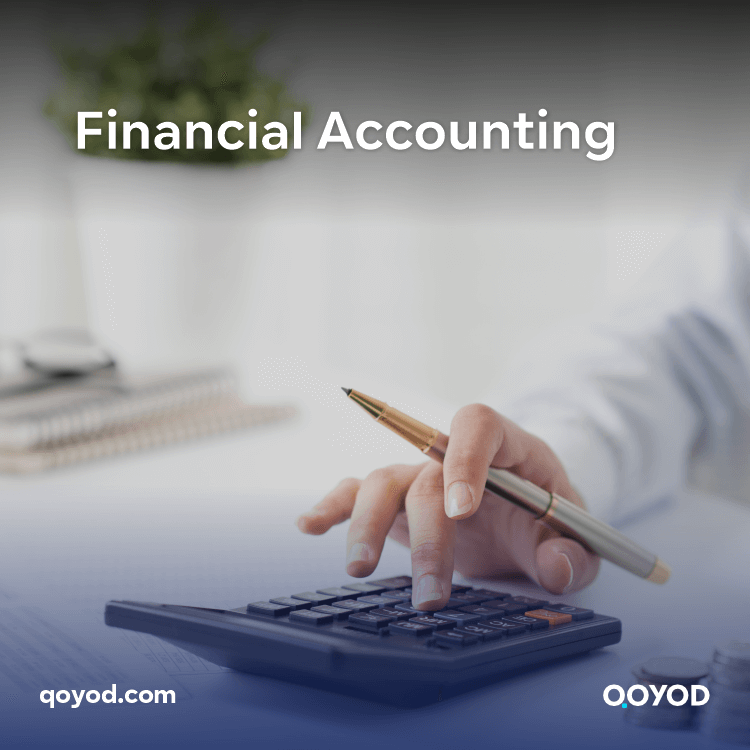With the rapid advancements in technology, it is now very simple for people to start their own businesses. These businesses are typically small or medium-sized, meaning that the owners must oversee or handle many administrative and accounting responsibilities themselves.
Therefore, entrepreneurs are looking for accounting terms to understand them and know how to apply them, including the concept of financial accounting, which is a branch of accounting used by companies of all sizes and fields.
As a result, we provide you with a thorough introduction to financial accounting in this article, which will address all of your concerns regarding its meaning, significance, guiding principles, operation, beneficiaries, and distinctions from management accounting. So follow us.
The concept of financial accounting
It can be defined simply as a systematic process of recording, summarizing, and classifying financial transactions resulting from business operations over a specified period of time and communicating summaries of a company’s financial transactions and performance to relevant external parties, such as creditors, investors, and regulators.
The primary goal of financial accounting is to provide information on a company’s financial performance. This is achieved through the preparation of financial statements, such as the balance sheet, income statement, and cash flow statement, which aid in assessing the financial condition of the business and assisting in decision-making.
How is it different from managerial accounting?
The main difference is that financial reporting provides information to external parties, while managerial accounting helps internal parties, such as managers in the company, plan strategically and make decisions.
Principles of Financial Accounting
There are four basic principles that are reflected in many of the applied practices of the financial accountant, and they can be explained as follows:
1. Historical cost
The historical cost concept, also known as the original acquisition cost principle, is predicated on recording assets at the purchase price; it ignores the negligible changes in market value associated with costs incurred after the acquisition date. As a result, the profit statement displays costs calculated using the initial cost of acquiring related goods or services.
2: Generating revenue
This concept highlights the requirements that must be fulfilled in order to decide when revenue recognition should occur. It deals with calculating revenues for a certain time. This approach is often based on accrual, which means that it is not tied to the cash collection of products or services. Instead, it is dependent upon the fulfillment of a trade between the firm and other parties as well as the completion of the revenue acquisition process.
3: Revenue against expenses
Just as the revenue generation principle determines the timing of revenue recording, there must be a principle on which to determine the timing of the recording of expenditures, namely the principle of matching income with expenses. This principle is based on a key rule applying the accrual basis, namely that the point at which cash for assets and services is recognized is not necessarily the point at which accounting expense is recognized since the asset and service have been depleted or used for the purpose of obtaining income earned during a given period.
4: Full disclosure principle
This principle requires the need to show all appropriate information affecting the determination of profit and financial position, whether in the body of the financial statements themselves or in the notes on the financial statements. This, of course, does not mean that the subtleties and details of the information must be disclosed. The accounting methods used in the preparation of financial reports should also be clarified.
Financial accounting methods
There are two main methods of recording transactions in accounting and financial management, one based on the accrual basis and the other on the basis of cash, and the difference between them is the timing in which transactions are recorded, as can be illustrated in the following table:
| Accrual basis | cash basis |
| Recording transactions when revenue is realized or liabilities are due | Recording transactions upon receipt or delivery of cash |
| A more accurate method of accounting | An easier way to account |
| Used in larger public companies as part of external reporting | Used by small private companies with low or no reporting requirements |
The importance of financial accounting
Companies use accounting and financial management because of their many benefits, and we summarize some of them as follows:
1. Define standard rules.
Accounting defines a set of standard rules that define and regulate the way financial statements are prepared, achieving consistency across different reporting periods.
2. Reduce risk.
Accounting reduces the risks faced by the company by enhancing accountability, as accounting ensures that the company’s financial reports are prepared using appropriate and accurate methods that make companies responsible for their financial performance, as creditors, regulators, tax authorities, and any other external parties rely on these financial reports.
3: Improving decision-making
Accounting ensures the preparation of accurate financial reports, and by analyzing the results in the reports and making decisions based on them, the company can make informed decisions, such as strategic, investment, and other decisions.
4: Enhance confidence in financial reporting.
Financial accounting rules are overseen by independent governing bodies, which makes reporting independent of management, thus becoming a reliable source of accurate and objective information.
5: Enhance transparency
Accounting includes a lot of rules and requirements that force companies to disclose accurate information about how operations are going, the risks faced by the company, and to paint an accurate picture of financial performance, regardless of whether it is good or bad.
Who benefits from accounting for finances?
Preparing financial statements is the primary goal of accounting and financial management. These statements help the following groups as well as the company’s management:
1- Investors
Investors usually look for a company’s financial reports to understand how it is performing and make expectations about its future before deciding to invest their money in it.
2- Auditors
Companies may be required to submit their financial status to auditors who analyze the financial statements to ensure that the reports are error-free and that appropriate financial accounting guidance is used.
3- Banks
Creditors, banks, and other similar financial institutions always require financial data as part of the process of giving commercial loans, as they need to see that the company is in good operating health before giving the imposition, and the data can also be used to determine the value of the loan, undertakings, or interest rate of the loan.
How does financial accounting work?
Accounting and financial management use the well-established principles mentioned above for financial reporting, and the data used in these reports is classified into five main classifications as follows:
- Revenue includes income from sales of products and services, profits, and interest.
- Expenses: This includes costs of producing goods and services, from research and development to marketing and salaries.
- Assets: It consists of property, whether tangible, such as real estate and computers, or untouched, such as patents and trademarks.
- Liabilities: These are outstanding debts, such as loans or rent.
- Equity: If you pay off a company’s debts and liquidate its assets, you will receive its equity, which the company is entitled to.
An example of financial accounting
The profit and loss statement of the public company is an example of financial accounting, which is a financial report that shows the amount of revenues and expenses recognized in a certain accounting period, and other reports include the following:
- Balance sheet.
- Cash flow statement.
- Statement of Equity.
Qoyod: Your Perfect Choice for Effective Financial Accounting
The Qoyod program is your ideal choice for effective financial accounting in your company, as it works to apply all financial accounting principles in all the services it provides to meet all the requirements of managing your accounting business in your company. Qoyod guarantees you accuracy and security in all financial transaction data that you enter, creates sound restrictions based on these transactions, and prepares accurate and smart financial reports, helping you make the right decisions in your company.
Conclusion
Financial accounting is the framework that sets rules on how financial statements are prepared, which determine how a company translates its operations into a series of consolidated and widely accepted financial reports. Accounting and financial management play a crucial role in keeping companies accountable for their performance and transparent about all their operations.
It is useful to use accounting systems in your company, as they ensure that you apply all accounting principles accurately and prepare smart financial reports that help you make informed decisions.
The best of these programs is Qoyod, which offers you a full range of cloud accounting services that you can benefit from from any smart device connected to the Internet and without downloading. You can also get a completely free trial period for 14 days, and without a credit card, just subscribe to the Qoyod accounting system and make a difference for your company yourself.
Join our inspiring community! Subscribe to our LinkedIn page and Twitter to be the first to know about the latest articles and updates. An opportunity for learning and development in the world of accounting and finance. Don’t miss out, join us today!




